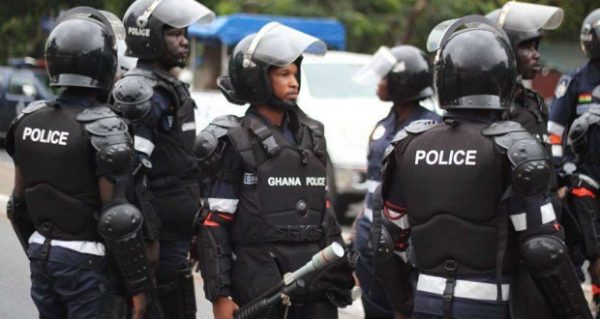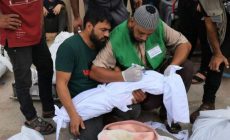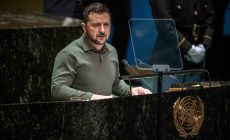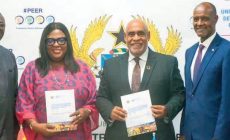UN recalls accused unit
Consequently, the United Nations Mission in South Sudan (UNMISS) recalled the 46-member Formed Police Unit (FPU) to return to the capital Juba from its Protection of Civilians site in Wau, northwest of Juba.
UN launches investigations
The recall was ordered after an investigation was launched into a complaint that members of the unit were having sexual relations with women living at the camp.
Initial investigation demanded recall
UNMISS, in a statement, said that its head, David Shearer, and other mission leaders were briefed about the initial investigation, and a decision was made to withdraw the unit from the site.
This investigation was conducted by the Office of Internal Oversight Services, an independent office within the United Nations.
“The information received indicates that some members of the FPU (Formed Police Unit) allegedly engaged in transactional sex.
“This is a clear breach of the U.N. and UNMISS Code of Conduct, which prohibits sexual relationships with vulnerable individuals, including all beneficiaries of assistance,” it said.
“UNMISS has informed U.N. headquarters in New York of the allegations, which in turn notified the Member State that the matter was being investigated by the United Nations. There is no indication that this behaviour is more widespread within the Mission.”
Over 200 Ghanaian police officers still serving in South Sudan
Despite the recall of this particular unit, it is important to state that Ghanaian police officers, numbering over 200, serving in different capacities in South Sudan continue to discharge their duties with excellence since they are not part of the unit facing the accusations.
Information gathered also indicates that there is a second Formed Police Unit serving in South Sudan without any accusation against them.
Breach of C.I. 76
If the allegations are proven, the action of the officers would amount to a major offence under regulation 82 of Ghana Police Service Regulations C.I. 76.
Penalties includes dismissal
Penalties for such major offences are dismissal from the service and reduction in rank.
No prosecution if it is not rape
Once it is not rape, the accused officers would not face prosecutions, but if they are reduced in rank, the UN will blacklist and bar them from taking part in all UN assignments.
Ghana Police pledge co-operation with UN probe
Reacting to the development, the Police Administration expressed its readiness to fully co-operate with UN investigations into the allegations.
Ghana Police request to send three-man team to Sudan
Consequently, the Police Administration has also requested the UN to allow it to send a three-man team to also look into the claims.
“In the response, the Police Administration reiterated its commitment towards ensuring the highest professional standards by its officers participating in UN Peacekeeping Operations and will not tolerate any acts or actions by Ghanaian Police Officers that contrary to the United Nations Rules and Regulations” a statement signed by Director-General of Public Affairs, Assistant Commissioner of Police (ACP) David Eklu said.
UN expects member countries to punish errant peacekeepers
Under UN rules, it is up to soldier-contributing countries to take action against their nationals who face credible allegations of sexual abuse and exploitation while serving under the UN flag.
Last year, the UN unveiled a new strategy aimed at stamping out sex abuse by its peacekeepers, with measures that include withholding the salaries of the soldiers who are under investigation for such crimes and directing them to a victims’ trust fund.
UN Secretary General Antonio Guterres proposed that salary payments to countries that fail to investigate allegations involving their troops should be withheld, and that those amounts could be instead directed to a victims’ trust fund.
Over 2,000 allegations of sexual exploitation
Between 2005 and 2017, there were at least 2,000 allegations of sexual exploitation and abuse by civilians against peacekeepers around the world.
The UN registered a total of 145 cases of sexual exploitation and abuse involving all members of the UN in 2016 – up from 99 in 2015.
UN peacekeepers have been hit by a series of accusations of sexual exploitation and abuse of civilians in its missions across the globe.
UN accused of burying cases
The international body has also been accused of burying cases and failing to act promptly or transparently on incidents perpetrated by its troops.
South Sudan descended into civil war in 2013
South Sudan, which won independence from Sudan in 2011, descended into civil war in 2013 months after President Salva Kiir fired his deputy Riek Machar. Tens of thousands of people have been killed and a third of the population have fled their homes.
The United Nations has six civilian protection sites across the country, housing some 204,501 people.
UNMISS comprises over 17,000 peacekeeping personnel, including 13,000 soldiers and 1,500 police officers.
Personnel of the Ghana Armed Forces (GAF) and Ghana Police Service (GPS) have served as UN peacekeepers since the early 1960s.
Since their first participation in the UN Operation in the Congo (ONUC), over 80,000 Ghanaian military, police and civilian personnel have served in various capacities in more than 30 UN missions. Ghana has been a top 10 contributor for more than two decades.
As of September 30, 2015, Ghana ranked eighth, with a total number of 3,247 peacekeepers, comprising 353 police officers, 2,820 troops and 74 military experts.
At the September 28 peacekeeping summit in New York, Ghana pledged to provide a helicopter unit, an infantry battalion, a signals/communication company, two naval patrol boats, a riverine unit, a level-II hospital, and two formed police units (FPUs).
Ghana’s most recent contribution included an engineer company, Military Aviation Unit, staff officers, military observers, police and civilian personnel to support the UN Multidimensional Integrated Stabilisation Mission in Mali (MINUSMA).
As the only African Aviation Unit in MINUSMA, Ghana’s Aviation Unit has successfully carried out tasks such as provision of fixed winged tactical air transport services for various purposes, logistics support flights, MEDEVAC/CASEVAC, and general passenger flights. The engineer company is also the only unit responsible for the construction of all prefab units in the MINUSMA Super Camp in Timbuktu. In early 2014, Ghana also deployed over 800 armed troops to the UN Mission in South Sudan (UNMISS) in addition to the Staff Officers, Military Observers and police personnel that were already deployed in the mission.
Apart from the UN, personnel of GAF and GPS also serve under African Union (AU) missions at the regional level and at sub-regional level, missions of the Economic Community of West African States (ECOWAS). Currently at the regional level, Ghana’s military and police officers continue to serve under the AU Mission in Somalia (AMISOM). Though Ghana does not have personnel serving in the ECOWAS Mission in Guinea Bissau (ECOMIB), it deployed an Engineer Corps, comprising 120 troops, to support the erstwhile African-led International Support Mission in Mali (AFISMA) by the ECOWAS and AU, which transitioned to MINUSMA in July 2013.
Part 2: Decision-making
The decision-making process to deploy peacekeepers occurs at two levels: strategic and operational. It is not governed by parliamentary legislation, but is principally an institutional procedure adopted by both the military and police to guide their decision-making. At the strategic level, the military and police follow similar processes. The key actors’ involved at this level include the President, Cabinet, Parliament, Minister of Defence, Minister of Interior, Minister of Foreign Affairs, Ghana Armed Forces Council (GAFC) and Ghana Police Council, Chief of Defence Staff (CDS), and the Inspector-General of Police (IGP). The decision on whether to supply troops and/or police remains the prerogative of the President, who is the Commander-in-Chief of the Ghana Armed Forces, according to the Article 57(1) of the 1992 Republican Constitution of Ghana. Other actors are advisors to the President, with the exception of the Minister of Foreign Affairs and Parliament. The Minister of Foreign Affairs negotiates the logistical and operational details of Ghana’s participation with the UN through the Ghana Permanent Mission in New York. Parliament, especially the Parliamentary Select Committee on Defence and Interior (PSCD&I), discusses the initial request in camera before the discussion on the floor of the House. Subsequently, Parliament’s Finance Committee also discusses the financial implications before the full House approves all budgetary disbursements meant for peacekeeping procurement and expenses.
Before any decision is made to contribute UN peacekeepers, an internal threat assessment is conducted to ensure that the absence of personnel will not have any adverse effect on the country in terms of the government’s capacity to deal with potential national security crises. This assessment is mainly carried out by the CDS, IGP, Armed Forces, and Police Councils, with the support of the GAF’s International Peace Support Operation (IPSO) office and the International Relations Department (IRD) of the GPS.
In carrying out this assessment, four critical issues are taken into consideration:
1. Is the mission mandate in line with the national interest and are there effective command and control structures as well as clearly defined rules of engagement? This is to avoid deployments to missions such as AMISOM that were considered detrimental to Ghana’s interest and the safety of its personnel.
2. What is Ghana’s internal political situation with respect to internal security requirements, political climate, and potential ethnic tensions? And are there adequate numbers of peacekeepers to contain any emergency situations? This consideration assesses such external requests in relation to the internal political and security situation in Ghana. For example, risk assessments relating to the judicial adjudication of the controversies surrounding Ghana’s 2012 contested elections showed that there is the need for a high level of preparedness prior to the delivery of the judgment.
3. What is the level, size, and expertise of the troops and police contributions demanded in the UN request or memorandum of understanding (MOU)? This assesses whether the number/type of soldiers requested can perform the required tasks, and in the case of the police, the specific expertise that is needed for the mission.
4. What are Ghana’s current capacities in terms of the requisite human, financial, and logistical resources?
Once this threat assessment is completed, the conclusions are forwarded to the President, who decides what Ghana can contribute. If the answer is positive, a process begins at the operational level for selection and training for peacekeeping or peace enforcement duties.
At the operational level, the GAF and GPS have different procedures for selecting and training personnel for peacekeeping duties. In the GAF, the key players are the Director of International Peacekeeping Support Operation (DIPSO), Director of Army Peacekeeping Operations (DAPKOP), Director of Navy Peacekeeping Operations, and the Director of Air Force Peacekeeping Operations. While the DIPSO co-ordinates the peacekeeping activities of the GAF in general, the Directors of Peacekeeping Operations of the three service headquarters (i.e., Army, Navy, and Air Force) supervise the selection processes of their individual headquarters.
When the government decides to contribute troops, the information is widely circulated among the various service headquarters by the IPSO office for nomination of eligible officers. The type and number of officers to be nominated in Army, Navy and Air Force categories is based on the specifications required by the UN request. However, depending on Ghana’s internal security needs, the decision can be made either to deploy a unit, which is formed around an existing battalion or a composite battalion or taskforce that is created by bringing together personnel from different units and assigning a commander. Usually, shortlisted officers undertake a written examination, after which successful candidates are nominated. A medical examination is then organised by IPSO to select successful candidates for training.
All successful candidates congregate at Bondase, a training facility managed by the KAIPTC field training team to undergo pre-deployment training for a month or more. Because there are assigned dates to each deployment, all candidates are dispersed to their various service sectors after training. The selection process is a very competitive exercise that is sometimes fraught with allegations of corruption and favouritism.] However, these allegations have been denied by the GAF command and have not been substantiated.
For the Ghana Police Service, its International Relations Directorate (IRD) selects and prepares officers for the requested mission in concert with the deputy IGP in charge of administration and the UN Department of Peacekeeping Operations (DPKO). When the decision is made to contribute police personnel, the information is sent throughout all 12 regional police commands in Ghana seeking nominations of qualified officers. To ensure fair representation, a quota of police nominations is given to each region based on the size of police strength and the specific qualifications and expertise required by the UN. As soon as the IRD gets the full list of nominees from all the regions, the pre-selection of eligible officers begins with a screening exercise that assesses the competence of successful nominees for the mission tasks. Once this is done, DPKO officials carry out the UN Selection Assessment Test to select officers who qualify based on the skill-set specified in the peacekeeping mandate. Successful candidates undergo pre-deployment training with a subsequent medical screening exercise for the final selection of candidates. Candidates who emerge successful after the medical examinations wait for UN assigned dates for deployment. Like the selection process in the GAF, the process confronts many challenges. In recent times for example, there have been allegations of corruption, favouritism, and unfairness in the nomination of personnel. However, these allegations have been denied by the police administration who state that when some personnel fail to be nominated, they resort to tarnishing the image of senior officers and that of the service.
Part 3: Rationales for contributing
Political and Normative Rationales: Ghana’s engagement in UN peacekeeping is driven by a deep-rooted commitment to help maintain international peace and security as enshrined in the UN Charter. More importantly, this commitment is underpinned by domestic legal principles and values, which are set out in Ghana’s Republican Constitution of 1992. Specifically, Article 40(c) (d) states that Ghana should: “Promote respect for international law and treaty obligations and the settlement of international disputes by peaceful means; and adherence to principles enshrined in or as the case may be, the aims and ideals of: (i) the Charter of the United Nations; (ii) the Charter of African Union; (iii) the Commonwealth; (iv) the Treaty of the Economic Community of West African States; and any other International Organizations of which Ghana is a member.”
Participation in peacekeeping, therefore, is related to Ghana’s commitment to sustain global peace, security, and stability. Politically, it is also believed that participation in peacekeeping offers Ghana a mechanism to exert influence in world affairs and enhance its image and prestige in the international system. For instance, Ghana is currently the only African country with an aviation unit in MINUSMA, which is boosting Ghana’s international image.
Security Rationales: Ghana shares cultural history and ties of blood with countries in the sub-region, especially with its immediate neighbours. Given the spate of civil wars that have engulfed the West African sub-region, there has always been the fear of a spill-over of proximate conflicts into Ghana. Ghana, therefore, participates in international peacekeeping efforts to: (a) control and suppress the spread of such wars; (b) prevent them from jeopardising its security and developmental agenda; (c) sometimes to extricate Ghanaian expatriates who may be caught up in the conflicts; (d) to stop wars sparking a wider conflagration which might undermine the region’s security, prosperity, and stability; and (e) to stem the humanitarian crises that are often associated with such conflicts. It is commonly assumed that Ghana’s security and economic development are best ensured by keeping the region peaceful. Ghana’s commitments to provide UN peacekeepers in Côte d’Ivoire, Sierra Leone, and Liberia are good examples of this approach.
Economic Rationales: Economic rationales, both individual and at the national level, have become a major reason for Ghana’s peacekeeping deployments. Peacekeeping engagements have also brought pecuniary rewards to the GAF and GPS as well as individual personnel through the compensation packages offered by the UN. In MINUSMA, for example, the UN pays the Ghana Aviation Unit an amount of $9,400 per an hour flight. In a month, the unit is expected to do 80 hours flight, but it usually does about 100 hours. The UN pays $8,000 per hour for the extra 20 hours. What this means is that in a month, Ghana is earning about $900,000 from its involvement in MINUSMA. In addition, the UN provides compensation for equipment costs and the troops also receive $30 a day as mission subsistence allowance. For the State and the GAF especially, these financial gains represent a major supplement to the national defence budget, some of which has been used to purchase aircrafts and other military equipment. For the individual personnel, the UN reimbursement package offers an important income supplement. For example, officers who hitherto could not afford to build their own houses, buy good cars, and provide sufficiently for their family, can do so because of the financial rewards they get from UN peacekeeping.
Institutional Rationales: Ghana’s participation in UN peacekeeping is also motivated by the operational benefits that accrue from such activities. In particular, peacekeeping has served as an avenue for the military and police to acquire overseas experience and training. The GAF has benefited immensely from capacity-building initiatives and training assistance programmes such as the US African Crisis Response Initiative (ACRI) and African Contingency Operation Training and Assistance (ACOTA), France’s Reinforcement of African Peacekeeping capabilities programme (RECAMP), and Canada’s Military Training Assistance Programme (MTAP). Such collaborative training and assistance programmes have also offered opportunities for the GAF to accumulate military equipment and technology by retaining the supplies provided by the UN and other donors. Additionally, the exposure of GAF personnel, especially, those in the Air Force to new and difficult desert terrains like Mali is enhancing their professional and technical capabilities. While some military pilots are doubling the number of hours they have flown in aircraft since joining the GAF due to the vastness of Mali, the technicians are being exposed to new technical issues in their field of work. Through extensive pre-deployment, induction and in-mission training, the police have also gained broader perspectives on policing methods and issues such as human rights, rule of law, crowd control measures, crime scene management, investigations and administration. Given the resource constraints faced by the GAF and GPS, these training programmes have enabled them to improve skills and knowledge to reach advanced international military and policing standards. This has impacted positively on their professional expertise and capabilities and enhanced their operational performance both at home and abroad.
Part 4: Barriers to contributing
Alternative political or strategic priorities: Internal security concerns limit Ghana’s capacity and willingness to contribute troops or police to certain UN missions. Currently, Ghana contributes about 20% of its total army to UN missions. This affects their operational capacity whenever there is any internal strife, especially during election periods. For this reason, Ghana claims it will limit deployments of personnel to peacekeeping duties during such periods. To date, however, this does not appear to have dramatically affected Ghana’s contributions.
Alternative institutional preferences for crises management: This is not a significant consideration although Ghana prefers working under the UN than the ECOWAS or AU. The main reason is that ECOWAS and AU peacekeeping expenses are usually borne by troop-contributing countries and this imposes AN additional financial burden on Ghana’s limited resources. Moreover, the operational requirements of ECOWAS and AU peace operations in terms of adequate logistics and equipment are also sometimes lacking when compared to UN missions.
Difficult domestic politics: While the Ghanaian parliament is actively involved in the decision to deploy peacekeepers, the general public is not. The PSCD&I and the Finance Committee of parliament in particular, discuss and approve budgets meant for peacekeeping procurement and expenses.
Financial costs: This is not a major issue in discussions about providing peacekeepers because participation in UN peacekeeping benefits Ghana financially due to the UN reimbursement packages. But equally important are the non-fiduciary benefits discussed earlier. These cannot be quantified but they benefit Ghana nonetheless.
Resistance in the military: This is not a barrier because the GAF has been a strong supporter of UN peacekeeping. In fact, participation in UN peacekeeping forms part of the military’s internal rewards system (in terms of personnel promotion).
Legal obstacles: Ghana’s participation in UN peacekeeping is supported by the Article 40(c) (d) of the 1992 Constitution.
Part 5: Current challenges and issues
Ghana has been a consistent and longstanding supporter of UN peacekeeping efforts, irrespective of the type of ruling regime in Accra and the state of the domestic economy. It has usually maintained a position as a top-10 contributor of uniformed personnel for close to 50 years. The most pressing issues that have influenced decision-making on peacekeeping contributions are internal security requirements and overstretched armed/security forces. This may result from internal strife that puts pressure on the limited logistical and human resource capacity of the security services and the involvement of the military in several UN missions.
Another important issue is Ghana’s reservations about the “protection of civilians” (PoC) and the “Responsibility to Protect” (R2P) agendas. Ghana remains committed to PoC and R2P, but cautions that they should not be used (or misused) as an opportunity to undermine the sovereignty, independence and territorial integrity of states. The Libyan crisis (2011) provided an early signal regarding the need to sharpen the concept of R2P to avoid misunderstanding and to minimise collateral damage and other unintended impacts. Consequently, Ghana sees a need to refine the implementation of R2P and PoC, including on issues related to international criminal law.
Part 6: Key champions and opponents
Peacekeeping issues have generally been confined to the military and police establishments, with little or no public scrutiny. Therefore, there are no serious public debates on the subject. In other words, there are no identifiable champions or opponents of UN peacekeeping in Ghana.
Part 7: Capabilities and caveats
Ghana has limited modern capabilities such as strategic airlift/sealift, vehicles, weapons and communication equipment needed to contribute to UN peacekeeping. To overcome this limitation, the Ministry of Defence (MOD) and the GAF Council have undertaken initiatives to replace age-old equipment with modern equipment. The only current caveat that might impact on Ghana’s contribution to UN peacekeeping would be the full operationalisation of the African Standby Force (ASF), scheduled to be completed in 2015. Ghana will have to supply a significant number of troops to the 6,500-strong ECOWAS Standby Force. Ghana has pledged to contribute an engineering company of 150 individuals, a level-II field hospital of 75 personnel, and a helicopter squadron. This implies that Ghana will have to diversify its troop and police contributions to both the UN and ECOWAS/AU. These new demands may slightly affect Ghana’s personnel commitment to the UN. Developing the necessary human capacity and resourcing the GAF (with armoured vehicles, troop carrying vehicles (TCVs), surveillance and transport aircrafts, helicopters, communications equipment, weapons and ammunition) will be important challenges moving forward.
-providingforpeacekeeping.org











 (Selorm) |
(Selorm) |  (Nana Kwesi)
(Nana Kwesi)